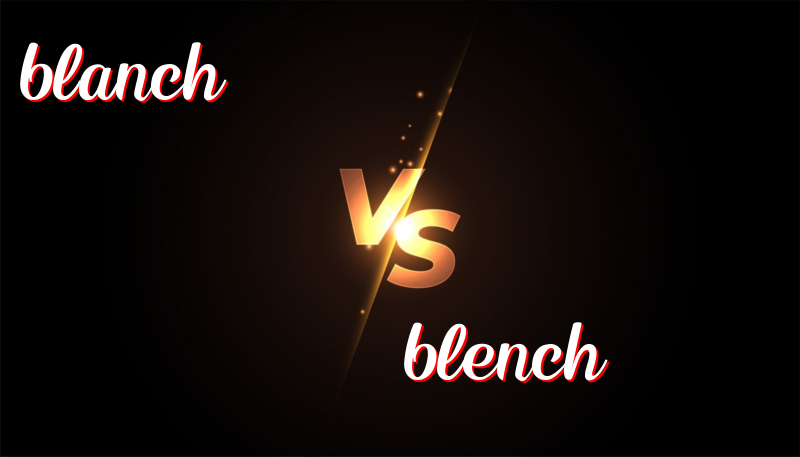英語單詞blanch 與 blench的區別
September 16, 2024
淺談「blanch」與「blench」的區別
「Blanch」與「Blench」是兩個容易混淆的英文單字,儘管它們看起來相似且發音相近,但其實在使用上有明顯的差異。本文將深入探討這兩個詞的歷史、使用方法,以及記住它們區別的小訣竅。
歷史
Blanch:源自拉丁語「blancus」,意為「白色」,進而演變為「blanchir」,意思是「使變白」。在英文中,「blanch」多用於描述將食物快速煮沸後迅速冷卻的過程,以保持其顏色和質地。
Blench:這個詞則源自中世紀英語的「blenchen」,意為「退縮」或「畏縮」。它描述了人在面對恐懼或驚嚇時的瞬間反應。
如何使用
Blanch:通常用於描述使某物變白或漂白。特別常見於烹飪領域,用來描述燙煮蔬菜的過程。
- He decided to blanch the vegetables before adding them to the stir-fry. 他決定先將蔬菜燙一下再加入炒菜中。
- The chef blanched the almonds to remove the skins. 廚師燙了杏仁以便去皮。
- To retain the bright green color, it’s best to blanch the spinach. 為了保持鮮綠色,最好先燙一下菠菜。
- She blanched with anger when she heard the news. 當她聽到這消息時氣得臉色發白。
- It’s essential to blanch the peas if you want them to stay firm. 如果你希望豌豆保持堅挺,就一定要燙一下。
Blench:則用於描述由於恐懼或驚嚇而退縮或畏縮的動作。
- He did not blench in the face of danger. 他在面對危險時沒有退縮。
- She blenched at the sight of the accident. 她看到事故場面時退縮了。
- He blenched when he heard the thunder. 當他聽到雷聲時畏縮了。
- The soldier blenched as the enemy approached. 當敵人接近時,士兵畏縮了。
- She never blenches, no matter how difficult the task. 無論任務多困難,她從不退縮。
記住它們區別的小訣竅
記住這兩個詞的區別的一個簡單方法是把「blanch」和「white (白色)」聯想在一起,因為「blanch」涉及變白的過程。至於「blench」,可以將其與「flinch (畏縮)」聯想在一起,因為「blench」意味著退縮或畏縮。
總結
總結來說,「blanch」和「blench」儘管拼寫和發音相似,但在意義和使用情境上有顯著差異。「Blanch」主要用於描述使某物變白或燙煮食物的過程,而「blench」則用於描述因恐懼或驚嚇而退縮或畏縮的行為。通過聯想法,可以更容易地記住它們各自的用途。

Leave a Reply
You must be logged in to post a comment.